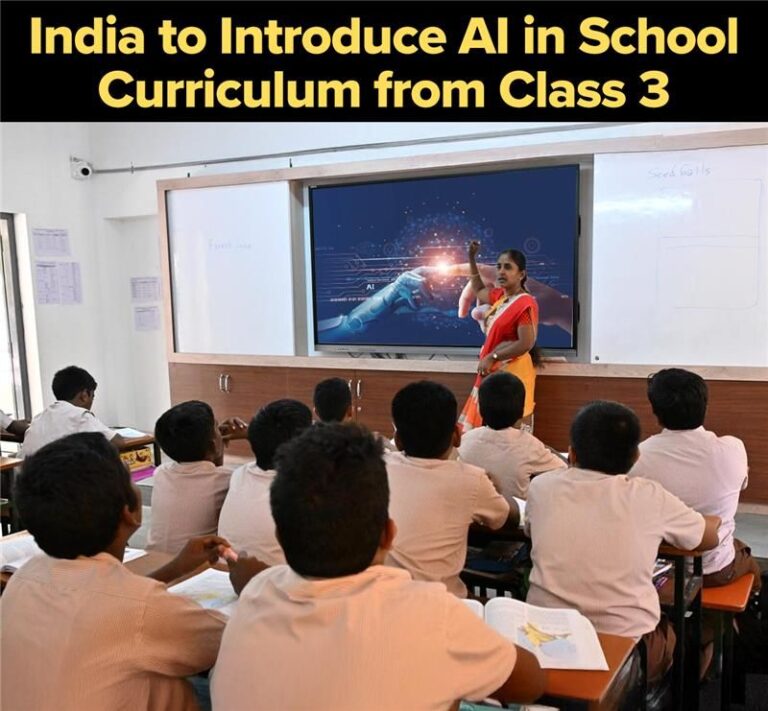In a landmark move, the Ministry of Education has announced that Artificial Intelligence (AI) and Computational Thinking (CT) will be introduced as part of the school curriculum starting from Class 3 in the 2026–27 academic year.
The initiative marks a significant step toward preparing young learners for a technology-driven future. It aligns with the National Education Policy (NEP) 2020 and the National Curriculum Framework for School Education (NCF-SE) 2023, which emphasize skill-based and experiential learning.
Key Highlights
- Implementation Year: 2026–27 academic session
- Applicable From: Class 3 onwards
- Focus Areas: Artificial Intelligence (AI) and Computational Thinking (CT)
- Frameworks Aligned With: NEP 2020 and NCF-SE 2023
- Curriculum Development Team: CBSE, NCERT, KVS, NVS, and IIT Madras experts
- Teacher Training Model: NISHTHA Framework
- Material Completion Deadline: December 2025
During a stakeholder consultation in Nagpur, the Secretary for School Education & Literacy, Sanjay Kumar, stated that “education in AI should be treated as a basic universal skill linked to the world around us.”
The goal is to help students:
- Understand how technology shapes their everyday lives.
- Develop problem-solving and analytical thinking from an early age.
- Learn coding, logic, and real-world data interpretation.
- Cultivate ethical awareness about AI use and its social impact.
This early exposure is expected to help India’s next generation become digitally literate and globally competitive.
The Education Ministry has outlined a detailed plan to ensure smooth rollout and effective adoption:
- Curriculum Integration: AI and CT will be embedded across subjects under the NCF-SE framework.
- Syllabus & Resources: Schools will receive handbook-based and digital learning materials.
- Teacher Training: Through the NISHTHA platform, educators will be trained to deliver AI concepts in a fun, age-appropriate manner.
- Curriculum Design: A CBSE-led team chaired by Dr. Karthik Raman (IIT Madras) is developing the syllabus and modules.
The initiative highlights India’s growing commitment to digital education and future-ready learning. By teaching AI and CT as core skills, the government aims to equip students with the critical thinking, creativity, and adaptability needed to thrive in the 21st century.
With structured training, inclusive materials, and a student-centered approach, India is taking a major leap toward making AI literacy a universal skill by 2026.

